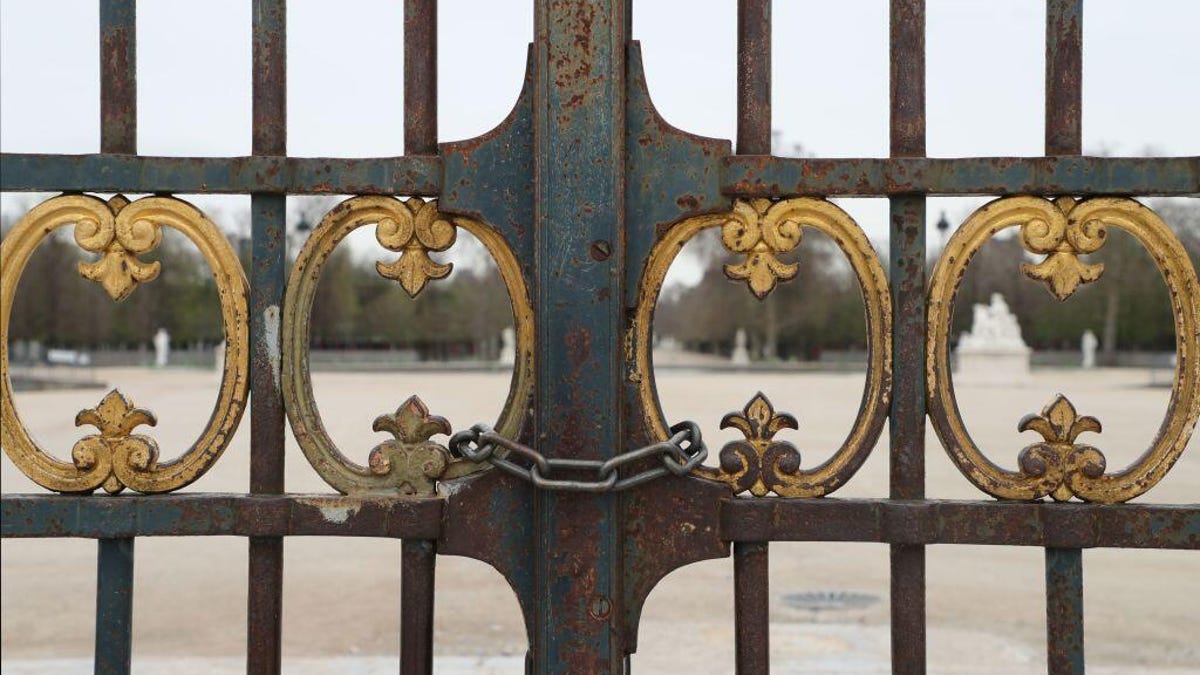The European Union is closing its borders in COVID-19 measures
The European Commission proposed a series of guidelines for EU nations.

The gates of the closed Tuileries Gardens in Paris, on March 16, 2020, as all nonessential public places have been closed to prevent the spread of COVID-19.
The European Union is closing its borders to temporarily restrict non-essential travel in an effort to slow the spread of the coronavirus. European Commission President Ursula von der Leyen outlined the proposed measures Tuesday, with most European member states agreeing to close borders for the next 30 days. German Chancellor Angela Merkel said Germany would be adopting the entry restrictions immediately. Andorra and some other nations did not agree, Merkel said.
Merkel added the EU is working to ensure wait times at national borders are not too long, so as to assure the movement of goods around the continent. Medical goods and equipment will continue flowing, Merkel said.
"Our priority now is to bend the trend of infection, to give our health systems and workers the time and space to care for those that need it," she said. "Our first priority is guaranteeing the health and safety of all our citizens: protecting people from the spread of the virus while maintaining the flow of goods."
The commission has additionally formed a team of "scientific experts composed of epidemiologists and virologists" from across Europe to coordinate medical response to COVID-19. It's also providing up to €80 million to European research company CureVac for vaccination development and production, and von der Leyen suggested setting up a €37 billion Coronavirus Response Investment Initiative to help small businesses and the health care sector through the crisis.

